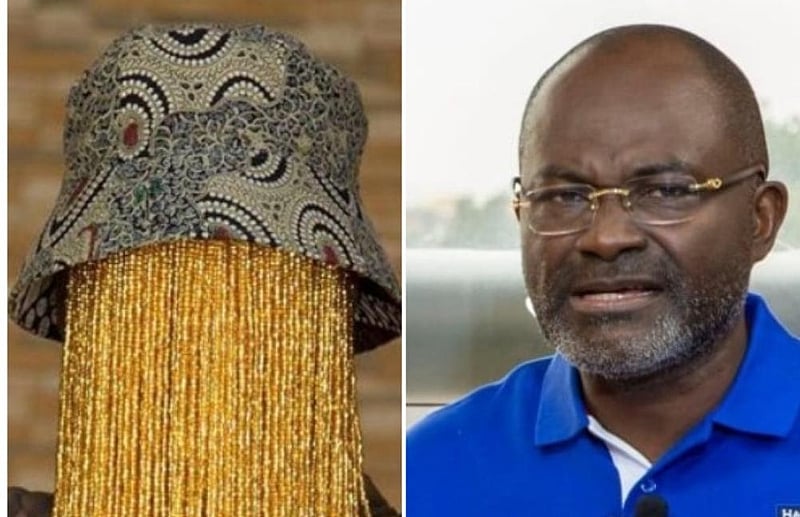Kennedy Agyapong, the outspoken former Member of Parliament for Assin Central in Ghana, has addressed his recent legal setback in a defamation case brought against him by investigative journalist Anas Aremeyaw Anas. Agyapong, who contested for the flagbearership of the New Patriotic Party (NPP), conveyed a message of resilience and reaffirmed his commitment to speaking out against injustice, despite the significant financial penalty imposed by the court. He framed the experience as a learning opportunity that will ultimately strengthen his resolve and further refine his approach to advocating for the voiceless in society. Addressing his supporters upon returning from the United States, where the case was adjudicated, Agyapong expressed gratitude for their unwavering support, viewing it as a validation of his efforts and an encouragement to continue his work.
The Essex County Superior Court in the United States awarded Anas Aremeyaw Anas a substantial $18 million in damages following Agyapong’s defamatory remarks made during a 2021 interview. The court’s decision underscores the seriousness of the allegations levied by Agyapong and their potential impact on Anas’s reputation and safety. The interview, which aired on the “Daddy Fred Show” hosted by Ghanaian-American Frederick Asamoah, became the focal point of the legal battle. During the broadcast, Agyapong made a series of inflammatory accusations against Anas, labeling him a “criminal” and a “thief,” among other derogatory terms. These accusations, lacking substantiation, formed the basis of Anas’s defamation suit.
Agyapong’s comments during the interview went beyond mere name-calling and ventured into extremely serious allegations. He implicated Anas in the murder of fellow journalist Ahmed Suale, a tragic event that remains unresolved and continues to cast a shadow over press freedom in Ghana. Furthermore, Agyapong accused Anas of involvement in the deaths of Chinese nationals in Ghana, adding another layer of complexity and gravity to the already incendiary accusations. These claims, according to Anas, not only tarnished his professional reputation but also placed him in a precarious position, given his history of undertaking sensitive undercover investigations that often expose powerful individuals and networks.
Anas Aremeyaw Anas, known for his investigative journalism that often employs undercover techniques, has built a reputation for exposing corruption and wrongdoing in various sectors of Ghanaian society. His work, while impactful, has also made him a controversial figure, drawing both admiration and criticism. The lawsuit against Agyapong highlights the vulnerabilities faced by journalists, particularly those who challenge established power structures and delve into sensitive investigations. The substantial damages awarded by the court serve as a significant legal victory for Anas and potentially set a precedent for future defamation cases involving journalists in Ghana.
The case also raises important questions about the balance between freedom of speech and the responsibility to avoid making false and damaging accusations. Agyapong’s defense likely centered on his right to express his opinions, while Anas’s legal team focused on the demonstrably false nature of the accusations and the harm they caused. The court’s decision ultimately sided with Anas, indicating that the right to free speech does not extend to making unsubstantiated and defamatory statements that can jeopardize an individual’s reputation and safety.
The outcome of this case has wider implications for the media landscape in Ghana. It underscores the potential legal consequences of making unfounded accusations, particularly against journalists who play a crucial role in holding power accountable. The significant financial penalty imposed on Agyapong may serve as a deterrent to others who might consider engaging in similar behavior. While Agyapong has expressed his intention to continue speaking out against injustice, the legal and financial repercussions of this case may influence his approach and the language he uses in the future. The case also highlights the challenges faced by journalists operating in environments where they may be subjected to intimidation and threats for carrying out their investigative work.














